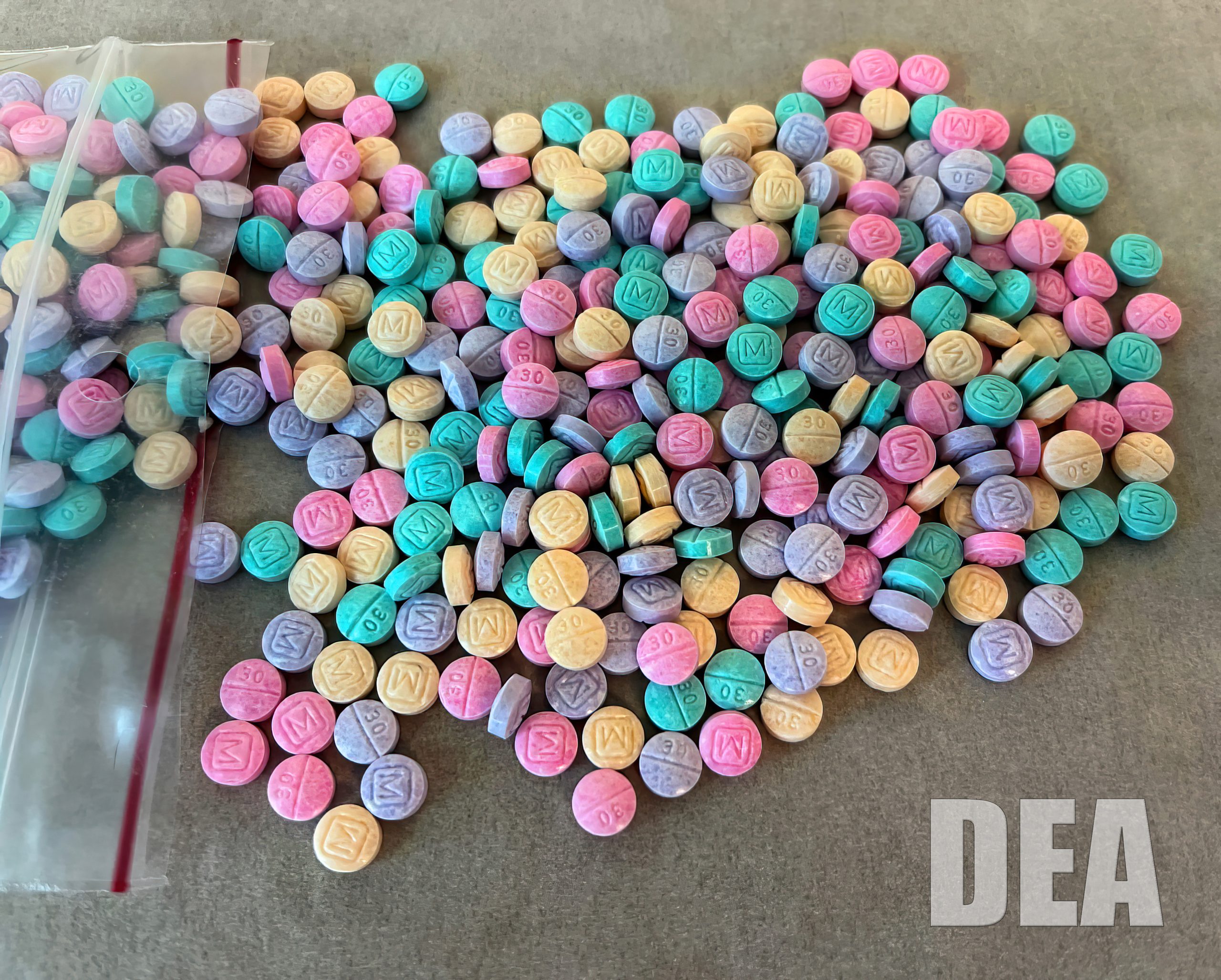One of the most dangerous and deadly drugs pervading our nation currently is fentanyl. The flow of this powerful drug coming into the United States from Mexico continues to skyrocket, with the Customs and Border Patrol seizing over 19,800 pounds of fentanyl crossing the southern border in FY23, compared to 7,600 pounds in FY22. Fentanyl seizures at ports of entry nationwide quadrupled from 2019-2021, added a report from CBS News. Mexican cartels often use the powerful drug to cheaply and deceptively boost the impact of other, less lethal drugs, such as cocaine or Adderall.
The rise in fentanyl-related deaths has fueled national conversations and promoted efforts to curb its smuggling. According to the National Institutes of Health, more than 70,000 people in the U.S. died from synthetic opioids, primarily fentanyl, in 2021. Overall, 106,000 people died of drug overdoses in 2021 in the U.S.
Fentanyl is a powerful synthetic opioid that is similar to morphine but is 50 to 100 times more potent, according to the CDC (cdc.gov). It can be prescribed by doctors to treat patients with severe pain or advanced cancer, but it is also highly addictive. According to the United States Department of Justice, Mexican cartel associates broker the sale and shipment of fentanyl precursor chemicals, primarily from China, to labs in Mexico where the fentanyl is manufactured. From the labs, traffickers move the fentanyl into the U.S. where it is sold wholesale to other criminal organizations.
The fentanyl and mixed drugs that are produced are very powerful and result in widespread addiction, overdose and death. People addicted to fentanyl who stop using it can experience severe withdrawal symptoms only a few hours later, according to the National Institute on Drug Abuse (NIDA) (nih.gov).
Naloxone is a medicine that can be given to reverse a fentanyl overdose. It can quickly restore normal breathing to a person whose breathing has slowed or stopped because of an opioid overdose. Naloxone should be given to any person who shows signs of an opioid overdose or when an overdose is suspected. It can be given as a nasal spray or it can be injected into the muscle, under the skin or into the veins. All systems used by first responders deliver the lifesaving dose of naloxone. This medicine is being used more by police officers, emergency medical technicians and non-emergency first responders. In most states, people who are at-risk or who know someone at-risk for an opioid overdose can be trained on how to give Naloxone.
Illinois House Republican Leader Tony McCombie (R-Savanna) has sponsored several bills to help combat this epidemic. HB 3203 allows pharmacists and retail stores to sell potentially life-saving fentanyl test strips over the counter. As fentanyl cannot be smelled or tasted, it is impossible to determine if drugs contain the powerful opioid without the use of test strips. The test strips will be able to identify if fentanyl is present in any drug, which is essential considering a dose of only two milligrams can have fatal consequences. The legislation was passed unanimously by the General Assembly and awaits Gov. Pritzker’s signature.
“This bill will help save lives,” McCombie stated. “Fentanyl is a drug that is taking far too many lives and as we continue to take steps to address the opioid epidemic affecting Illinois families, our priority with this legislation is to do what we can to save lives.”
Illinois lawmakers haven’t exactly acted with urgency regarding this dangerous and deadly drug, and that has McCombie very frustrated. In the 102nd General Assembly, House Democrats, over strong House Republican objections, passed HB 3447 which sought to decriminalize smaller possession amounts of all drugs including fentanyl. While the bill passed the house with no Republican votes, it was never called for a vote before the end of the 102nd General Assembly.
Leader McCombie also introduced legislation to strengthen penalties on selling drugs that contain fentanyl and against those who traffic fentanyl. “I am fed up with efforts to lessen penalties on drug dealers profiting off of selling lethal toxins to our loved ones,” added McCombie. “Fentanyl is often mixed in other drugs, vitamins and even in products that look like candy.
The flow of illegal fentanyl across our southern border and into our state must be stopped to seriously address this epidemic and save lives. Every tool must be made available to law enforcement, first responders, and educators to help end this crisis and keep our children safe from fentanyl’s lethal consequences.”
